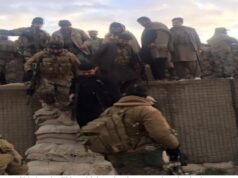In just over five decades of existence GRSE shipyard has successfully developed a wide variety of world-class fighting Ships including frigates, missile corvettes, anti submarine warfare corvettes and LCU ships for the Indian Navy, all of them armed with high-tech infrastructure.
It has the capacity to construct 20 ships in tandem. With the keel-laying of the 1st Advanced Stealth Frigate of P17A Project, it has once again touched a key milestone. It has also bagged orders for four Survey Vessels (Large) for Indian Navy on competitive basis and emerged a successful bidder through competition for 8 ASWSWCs, with private players active in the fray.
Now the Shipyard Garden Reach Shipbuilders and Engineers Ltd has launched two Fast Patrol Vessel (FPV) ships simultaneously for Indian Coast Guard on Thursday. These FPV ships are each 50M long, 7.5M wide with a displacement of around 308 tons and are designed for a maximum speed of 34 knots with an endurance of more than 1500 nautical miles.
These Vessels, ICGS Amrit Kaur and ICGS Kamla Devi are third and fourth in the series of five FPVs built by GRSE for the Indian Coast Guard.
According to Rear Admiral VK Saxena, Chairman and Managing Director, GRSE, “The FPV designs, exclusive to GRSE, are an improvisation on the Inshore Patrol Vessels (IPV) built by the Shipyard for the Indian Coast Guard, few years ago.”
“The vessels come with an efficient hull form developed in-house and proved after extensive model testing. These are fuel efficient and the powerful platforms are well suited for patrolling, anti-smuggling, and anti-poaching and rescue operations.”
These come fitted with state-of-the-art Main Engines with Advanced Control Systems and Water Jet Units and an ‘Integrated Bridge System’ assimilating all Communication and Navigation Systems.
The key armament of a 40/60 Gun and improved habitability features with fully air conditioned modular accommodation for 35 personnel are the other salient features of the ships.
With the launch now over the company is gearing up for the post launch activities which include balance fitting out of the ship, readiness of ship systems and setting to work of equipment / systems. Once over, the ships would be put to sea for trials before final delivery, the CMD added.
Upholding the best of maritime traditions, the ships were “Launched” by Veena Naravane, wife of Lt Gen Manoj Mukund Naravane, General Officer Commanding-In-Chief; Eastern Command, Indian Army. The ceremony was held in the presence of Rear Admiral VK Saxena, CMD, GRSE, and other Senior Officials of GRSE, Indian Coast Guard, Indian Navy, and Indian Army.
As part of Make in India initiatives, through indigenisation efforts, GRSE has made commendable progress by successfully incorporating a high percentage of indigenous content in the ships made in shipyard.
INS Kamorta and INS Kadmatt, the first two of Class of 4 ASW Corvettes became the first warships built in the country with indigenously developed warship grade steel, thus having the distinction of achieving over 90 % indigenous content and hence a major step towards achieving self reliance in state of the art warship design and construction space.
On the Landing Craft Utility (LCU) class of ships delivered so far almost 90% indigenous equipment fit has been achieved. Also, 70 % indigenous content in construction of four follow on WJFACs and 72 % indigenisation of the Railless Helo Traversing System on board 3rd ASW Corvette, INS Kiltan, have been achieved at the shipyard.




